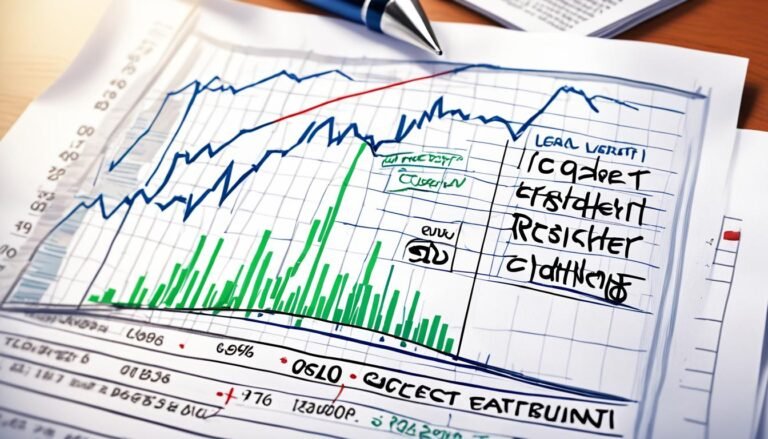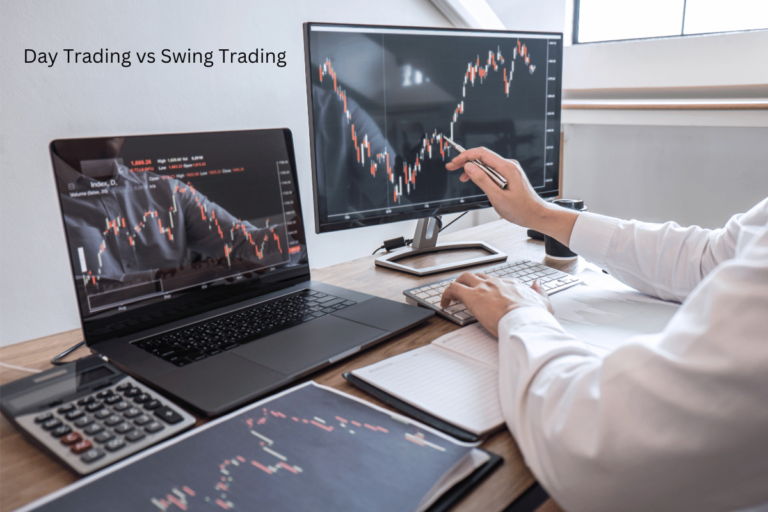The Future of Stock Trading: Technology’s Role
Did you know that stock trading is rapidly evolving due to technological advancements? From algorithmic trading to artificial intelligence, technology is revolutionizing the way traders operate. As you explore the future of stock trading, consider how these innovations are reshaping strategies and optimizing decision-making processes. Stay tuned to discover the intricate role technology will play in the stock market's future and how it could potentially transform the way you approach trading.
Key Takeaways
- AI enhances decision-making and optimizes trading strategies.
- Big Data analytics empowers traders with predictive modeling.
- Blockchain technology ensures transparency and security in transactions.
- Automation and machine learning streamline processes and enhance decision-making.
- Sophisticated algorithms drive efficiency and precision in analyzing market trends.
Algorithmic Trading Advancements
Analyzing market trends through sophisticated algorithms has revolutionized stock trading, propelling it into a new era of efficiency and precision. The rise of quantitative strategies and high frequency trading has greatly altered the landscape of financial markets.
Quantitative strategies involve the use of mathematical models to make trading decisions, enabling traders to analyze vast amounts of data quickly and accurately. This data-driven approach allows for more informed and strategic investment decisions, leading to potentially higher returns.
High frequency trading, on the other hand, leverages powerful computers and algorithms to execute trades at incredibly high speeds. By capitalizing on small price differences and market inefficiencies, high frequency traders aim to make profits in a matter of milliseconds. This lightning-fast trading style has become increasingly prevalent in today's markets, accounting for a substantial portion of overall trading volume.
As technology continues to advance, the integration of quantitative strategies and high frequency trading is expected to further shape the future of stock trading, driving innovation and efficiency in the financial industry.
Impact of Artificial Intelligence
The integration of artificial intelligence (AI) into stock trading practices is reshaping market dynamics by enhancing decision-making processes and optimizing trading strategies. AI algorithms can quickly analyze vast amounts of data, leading to more informed investment decisions and potentially higher returns. However, this technological advancement also brings forth ethical implications and regulatory concerns.
One major ethical consideration is the potential for AI to unfairly advantage certain market participants over others, raising questions about market fairness and transparency. Additionally, AI's ability to process information rapidly can contribute to market volatility, as automated trading systems react swiftly to changing market conditions.
In terms of investor trust, the reliance on AI raises concerns about the role of human judgment in trading decisions. Investors may question whether AI-driven strategies truly align with their long-term investment goals.
Regulatory bodies are also grappling with how to oversee AI-powered trading systems to guarantee compliance with existing laws and regulations, further highlighting the need for robust oversight mechanisms in the financial markets.
Role of Big Data Analytics
Utilizing advanced data analytics techniques plays an essential role in shaping the future landscape of stock trading. This enables traders to extract actionable insights from vast datasets for informed decision-making.
Data visualization tools are vital in transforming complex data into intuitive visuals. They aid traders in identifying patterns and trends that may not be apparent through traditional analysis methods. By visualizing market data through graphs, charts, and heat maps, traders can quickly grasp market movements and make timely decisions.
Predictive modeling is another key aspect of big data analytics that empowers traders to forecast future stock price movements. This is based on historical data, market trends, and various other variables. By leveraging sophisticated algorithms, traders can build predictive models that help them anticipate market fluctuations and optimize their trading strategies accordingly.
Blockchain Technology in Trading
Incorporating blockchain technology into stock trading revolutionizes the way transactions are verified and recorded, introducing transparency and security to the trading process. Blockchain offers the potential to reshape the traditional trading landscape by leveraging decentralized exchanges and smart contracts.
Here are three key ways blockchain technology is transforming stock trading:
- Decentralized Exchanges: Blockchain enables peer-to-peer trading without the need for intermediaries, enhancing efficiency and reducing costs.
- Smart Contracts: These self-executing contracts automatically facilitate and enforce the terms of an agreement when predefined conditions are met, streamlining trade execution.
- Transparency and Security: Blockchain's immutable ledger provides a guarantee that all transactions are transparent, traceable, and secure, mitigating the risk of fraud or manipulation.
Automation and Machine Learning
By harnessing automation and machine learning in stock trading, you can enhance decision-making processes and optimize trading strategies for improved performance. Automation can help execute trades swiftly based on predefined criteria, minimizing human error and emotional biases.
Machine learning algorithms analyze vast amounts of data to identify patterns and trends, aiding in market prediction with higher accuracy. These technologies can adapt to changing market conditions in real-time, enabling dynamic adjustments to trading strategies.
By utilizing automation and machine learning, you can fine-tune your approaches to capitalize on opportunities and mitigate risks efficiently. Moreover, these tools offer the potential to uncover hidden insights within market data that may not be apparent through traditional analysis methods.
Incorporating these advanced technologies into your trading practices can provide a competitive edge by streamlining processes and enhancing decision-making. As you embrace automation and machine learning, you empower yourself to develop more robust trading strategies that are data-informed and agile, driving better outcomes in the dynamic landscape of stock trading.
Conclusion
To sum up, technology is revolutionizing the stock trading industry with its advancements in algorithmic trading, artificial intelligence, big data analytics, blockchain technology, automation, and machine learning.
For example, consider a hypothetical scenario where an AI-powered trading system accurately predicts market trends and executes trades with precision, leading to significant profits for traders.
Embracing these technological innovations will be essential for staying competitive and successful in the future of stock trading.








